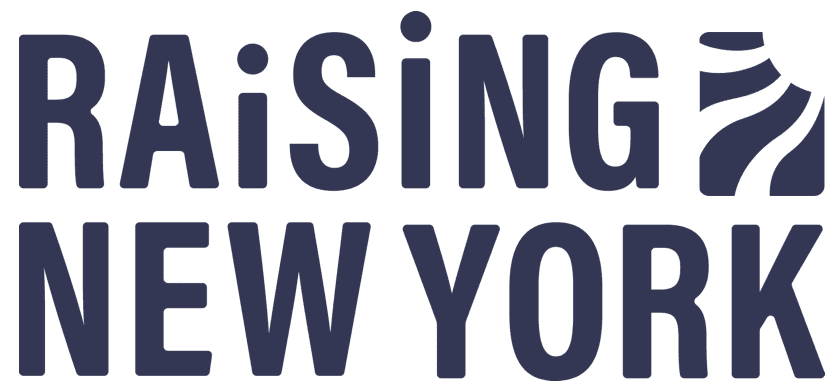The Education Trust–New York, on behalf of Raising NY, testified to the New York State Joint Legislative Hearing on Health on January 23, 2024
The Education Trust–New York is a statewide non-profit organization dedicated to educational equity. We work to attain educational justice through research, policy, and advocacy that results in all students – especially those from low-income backgrounds or students of color – achieving at high levels from early childhood through college completion. Thank you for the opportunity to submit written testimony for this hearing.
Ed Trust–NY coordinates the Raising NY coalition, a diverse statewide coalition of parent, early childhood, education, business, and health organizations dedicated to supporting the learning potential of all children, with a focus on improving long-term outcomes for infants and toddlers who are low-income, children of color, and other under-served groups. The health sector is a critical conduit of the wellness and health of infants and toddlers, and the reason a large focus of our agenda is on equitable and timely access to Early Intervention services, access to continuous Medicaid coverage for mothers and young children, and increased access to home visiting programs.
Early Intervention
The first three years of life are an especially critical period of growth and brain development, a time when specialized therapies can make the most impact for children with developmental delays or disabilities. In FY 2021, the percentage of infants and toddlers receiving Early Intervention services during the required 30-day window decreased from 90% to only 69% of all children. Additionally children of color were less likely to receive an evaluation or receive services within the critical 30-day window than White children. New York State has the opportunity to address these disparities. We respectfully offer the following recommendations to fully support all families in New York State.
- Increase reimbursement rates for Early Intervention providers by 11%
Since 2019, nearly 2,000 Early Intervention therapists have left the field, and 65 Early Intervention agencies have closed. Reimbursement rates, which have not increased in almost 20 years, when taking inflation into account, must be increased to stop this mass exodus of providers and increase the workforce capacity.
- Reform the methodology for Early Intervention
A cost study is needed to ascertain the true cost of services, to ensure that reimbursement rates accurately reflect the cost for evaluations, services and service coordination. - Create a student loan forgiveness program
Loan forgiveness is a key tool to attract new providers, support therapists and economic security for this key workforce, particularly for those who provide services in high-need areas.
Maternal and Infant Health
Governor Kathy Hochul took a great step forward in supporting maternal health by expanding Medicaid coverage for new mothers for a full year post-partum in the SFY2023 budget and we applaud her proposals in the SFY2024 budget to expand Medicaid continuous coverage to all children up to age 6, and to extend paid leave to the prenatal period. Access to high-quality maternal health and pediatric primary care is crucial to supporting the health and wellness of mothers and their young children, particularly the health of Black mothers, who are five times more likely to die of a pregnancy-related cause than White women in New York State.
- Ensure that continuous Medicaid coverage for children up to age 6 is in the final SFY 2024 budget and that this provision is permanent
High-quality maternal health and pediatric primary care is crucial to supporting the health and wellness of mothers and their young children, particularly the health of Black mothers and infants, who are facing emergency levels of mortality and illness. A medical home for mothers and young children provides not only health care, but also maternal mental health screenings, child development screenings, and referrals to Early Intervention when needed, as well as other supports and resources that maximize the growth potential during the critical early years of brain development and healthy attachment development. Further, Medicaid is one of the most effective anti-poverty programs, reducing out-of-pocket expenses and protecting recipients from the overall financial burdens that are associated with lack of insurance. - Maintain current funding for Help Me Grow
Families will continue to have access to comprehensive, family-centered, primary prevention services. (Please note that the funding for Help Me Grow in the Executive Budget is a reappropriation; any assistance freeing up appropriated funding so that programs can expand as promised last year would be appreciated.)
Home Visiting
Evidence-informed home visiting programs offer a critical connection for families to community-based resources related to maternal mental health, health care, child development and other supports. At a time when significant racial disparities around maternal and infant death are worsening, it is imperative that programs that provide support and resources to vulnerable families are fully funded.
- Increase funding for home visiting programs
Evidence-informed maternal and infant home visiting programs connect expectant and new parents with community-based resources that support the critical growth in the prenatal and postnatal periods of development and attachment. Increase appropriated funding for ParentChild+ in order to expand its support to more underserved communities, with a particular focus on communities struggling with inadequate child care resources. - Increase appropriated funding for the Nurse-Family Partnership program
Expand access to high-quality maternal and infant care to vulnerable families. - Maintain current funding levels of Healthy Families NY
Vulnerable families will continue to receive comprehensive support that fosters healthy growth and development.
The Education Trust–New York is committed to advocating for the health and well-being of all children and families. We are grateful for the opportunity to submit testimony and offer data-informed recommendations that can support the health and wellness of all young children and mothers, especially those who are most vulnerable and under-served.
If you have any questions regarding this testimony, please contact Lara Kyriakou, Associate Director of Early Childhood Policy & Advocacy for The Education Trust–New York, at [email protected].
Thank you.

